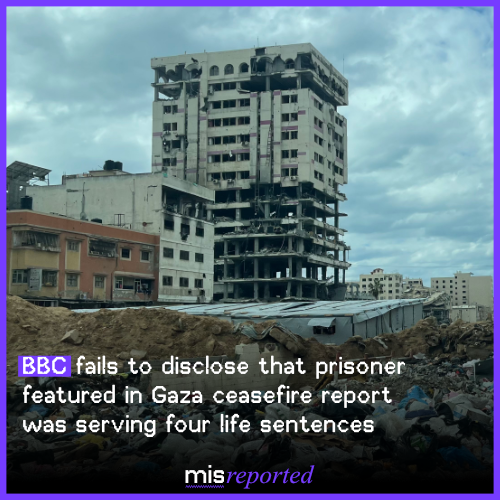BBC clarifies Gaza report after omitting prisoner’s four life sentences from original coverageThe
The BBC has updated its Gaza ceasefire coverage after failing to disclose that a Palestinian prisoner featured in its report was serving four life sentences for terrorism-related offences. The broadcast included an interview with Aida Abu Rob, who was waiting to learn whether her brother Murad Abu Rob would be among those freed after 20 years in prison. Although the BBC possessed verified information confirming his convictions and sentence, it did not consistently include this detail across all versions of the story.
The omission significantly altered the tone of the segment. Viewers were invited to share in the family’s anticipation of a “homecoming,” without being informed of the gravity of his crimes. That framing risks recasting a convicted terrorist as a sympathetic figure, softening public understanding of who was being released and why.
In conflict reporting, especially on hostage and prisoner exchanges, context is not optional. When journalists omit verified information about serious convictions, they blur the line between human interest and advocacy. Such gaps distort the moral landscape of the story and deprive audiences of a full understanding of the trade-offs behind negotiated releases.
The BBC has since added the sentencing information to all versions and acknowledged that it should have been included from the outset. The correction restores factual completeness — but the episode underscores a deeper editorial issue: in pursuit of emotional storytelling, critical facts were lost, and with them, accuracy itself.


